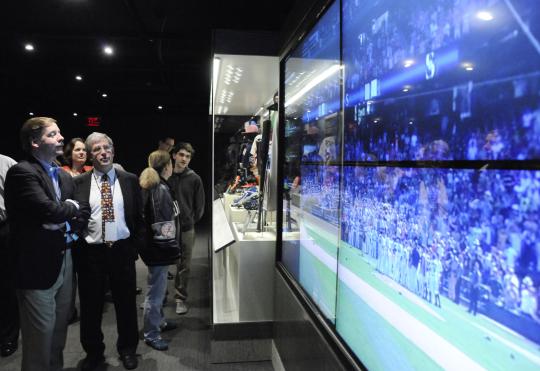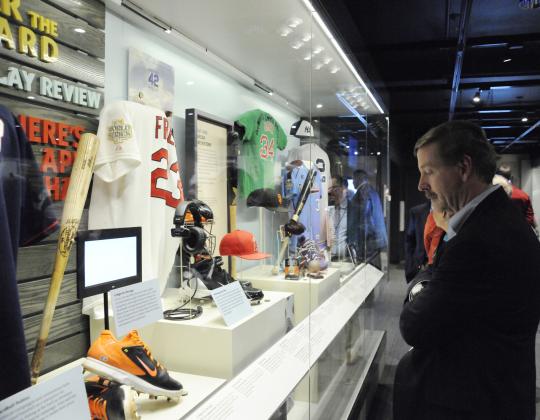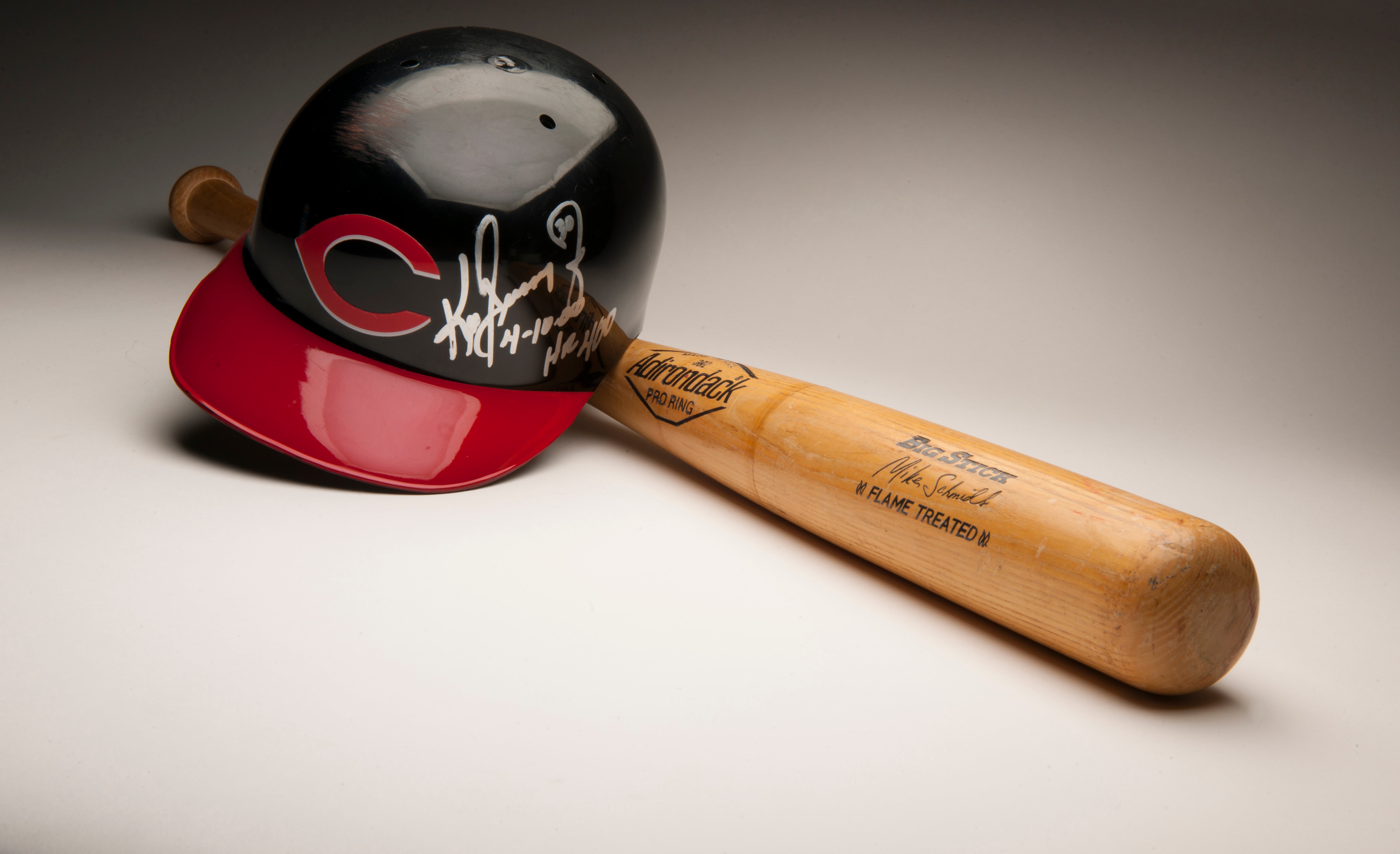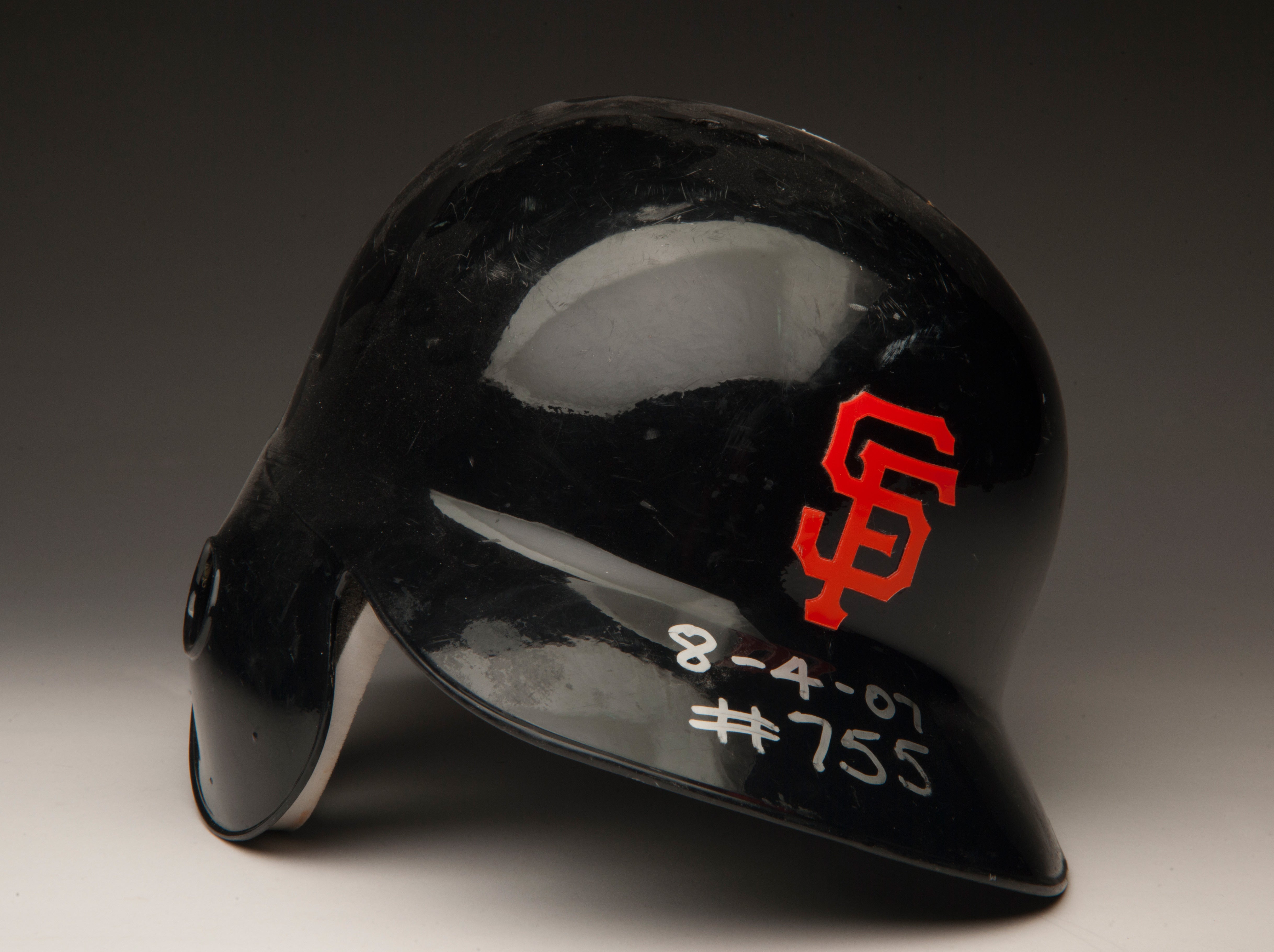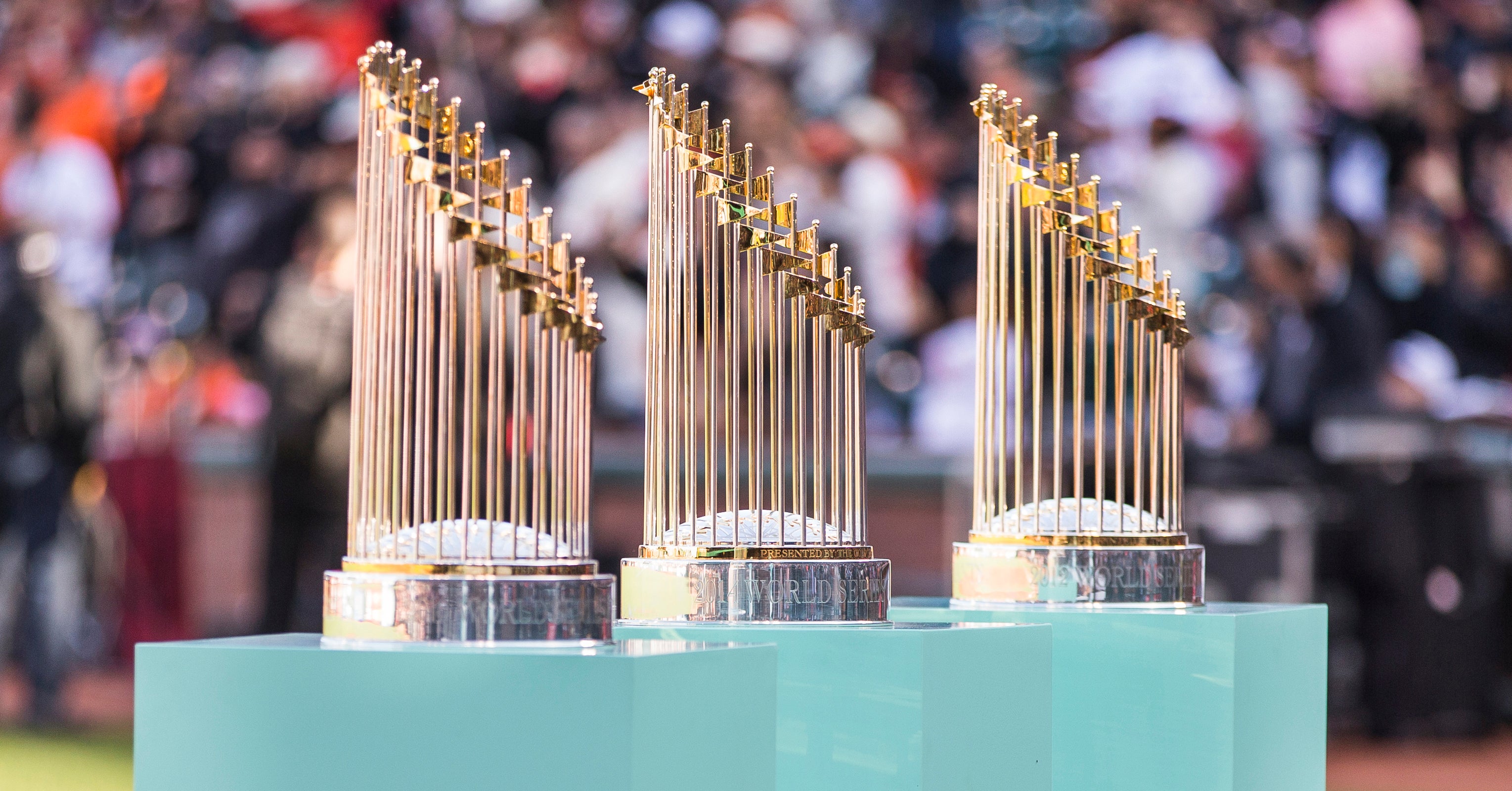- Home
- Our Stories
- Whole New Ballgame Opens to the Public
Whole New Ballgame Opens to the Public
Museum’s 'Whole New Ballgame' Exhibit Tells Story of Thrills, Changes of Baseball’s Last Five Decades
Transport a 1970 baseball fan directly to 2015, and the changes would boggle the mind.
Free agency. The designated hitter. Multiple new teams. And multiple new ballparks.
It’s a story that features change at a pace the game has never known – all while the timeless beauty of the National Pastime remains unchanged.
It’s a story that is now told in Cooperstown through the National Baseball Hall of Fame and Museum’s groundbreaking exhibit Whole New Ballgame.
The Museum unveiled its newest exhibit Saturday as part of the re-imagined Janetschek Gallery. Located on the Museum’s second floor, Whole New Ballgame debuted to rave reviews as Hall of Famer Carlton Fisk, whose Game 6 home run in the 1975 World Series signaled a re-birth for baseball, helped cut the ribbon with Hall of Fame Chairman of the Board Jane Forbes Clark, Museum President Jeff Idelson and Bill Janetschek Jr., whose generous donation in the name of his late father, Bill Janetschek Sr., fueled the new exhibit.
“Whole New Ballgame immerses the visitor in baseball’s last 45 years, which have included many of the game’s most iconic moments and significant changes – from historic home runs to integration of cultures and technologies,” said Jane Forbes Clark, Chairman of the Board of the National Baseball Hall of Fame and Museum. “Bill Janetschek has been a great supporter of the Museum and our mission for many years. We are so pleased to dedicate the Janetschek Gallery to celebrate his father’s memory and impact on Bill’s life with this fantastic gift.”
Whole New Ballgame features more than 300 artifacts and Library items while exploring iconic moments, game-altering rules changes and labor challenges that redefined the fiscal boundaries of the sport.
“This exhibit is just over the top,” Fisk said, “and the technology involved with it is going to be state-of-the-art. You’re able to push a button and see things you haven’t thought about for a long time. I’m discovering things I never knew about while I was playing in this era.”
From left, Hall of Fame president Jeff Idelson and Chairman of the Board Jane Forbes Clark join Bill Janetschek Jr.’s nephew Billy Acker, Bill Janetschek Jr.’s sons Billy Janetschek and Rob Janetschek, Bill Janetschek Jr. and Hall of Famer Carlton Fisk in cutting the ribbon to formally open the Whole New Ballgame exhibit Saturday on the Museum's second floor. (Milo Stewart, Jr. / National Baseball Hall of Fame)
Share this image:
Featuring new video displays and the implementation of interactive elements not seen before at the Cooperstown shrine, Whole New Ballgame chronicles the changing nature of baseball from the 1970s to the present by examining the game and its culture as a whole. The game’s athletic achievements and evolving nature will be celebrated and explained as well as the fans’ presence and the far-reaching social implications of the sport.
Focusing on post-1970 baseball, the new exhibit includes an expansive re-design of the last portion of the Museum’s historical timeline; a reimagining of the last 40-plus years of the National Pastime that features an interactive look at how the sport has evolved into the game we see today.
The exhibit features four interactive media walls, allowing visitors to choose highlight reels from the 1970s, 1980 through 1986, 1987 through 1994 and 1995 through the present. Whole New Ballgame will be the most interactive and video-based exhibit in the Museum’s 76-year history, capitalizing on the technology of today that has allowed video from the last four decades to be shared by millions of baseball fans.
The exhibit also features images from the Museum’s unparalleled collection of art and photographs, an in-depth look at the labor struggles that reshaped the game in the 1970s, 1980s and 1990s as well as the expansion and franchise movement that brought the game to every corner of North America.
From examples of ground-breaking baseball books like Ball Four and The Bronx Zoo to the ever-growing participation of women in baseball, Whole New Ballgame examines the cross-cultural impact of the game on society in America and around the world. Focus cases in the exhibit feature themes that include:
• Sport surgeries that have extended players’ careers;
• Dynastic teams of the era like the Big Red Machine and the 1990s Blue Jays;
• Rules and strategy changes such as the designated hitter and the rise of specialized relief pitcher roles;
• Baseball moments like the Phillies’ first world title in 1980 and the longest-ever pro game between the Pawtucket Red Sox and Rochester Redwings in 1981;
• The changing demographics of the game as it spread world-wide, including the influx of Latin American and Asian players into the game at the big league level;
• The impact on the game of performance-enhancing drugs
Whole New Ballgame will be a major part of the continuing Museum lineup and is included with regular Hall of Fame admission. For more information, please visit www.baseballhall.org/whole-new-ballgame.
Museum benefactor Bill Janetschek Jr., whose donation made possible the new Whole New Ballgame exhibit, looks at donated artifacts featured in the exhibit. Whole New Ballgame is housed in the new Janetschek Gallery named in honor of the late Bill Janetschek Sr. (Milo Stewart, Jr. / National Baseball Hall of Fame)
Share this image:
Explore more of Whole New Ballgame
A Father, a Son and a Legacy
A Father, a Son and a Legacy
Support the Hall of Fame
Mentioned Hall of Famers
Related Stories

Phil Niekro elected to Hall of Fame

The Holy Ball: Sparky and the Pope

Jane Leavy, the Museum’s Library, and Digitization
Pastime Presents: Museum’s 75th Anniversary Offers Fans Unique Gift Opportunities
Yankees Slugger Alfonso Soriano Headed to Cooperstown for Hall of Fame Classic, May 23

Harold Baines debuts on Today’s Game Era ballot

Every picture tells a story

19th century star Harry Stovey
1947 Hall of Fame Game
01.01.2023
Hall of Fame Weekend 2016 to Feature Inductions of Ken Griffey Jr. and Mike Piazza, July 22-25 in Cooperstown
01.01.2023
March Matinee: Meet Hoops Heroes Who Call Cooperstown Home
01.01.2023


